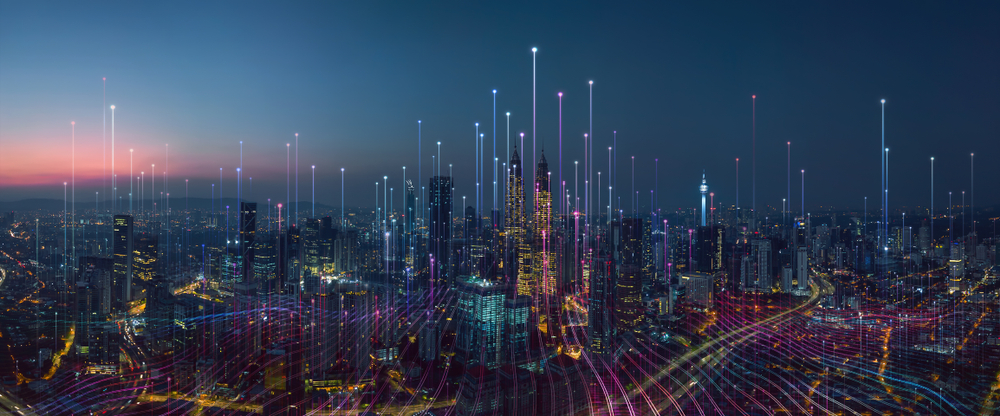The rapidly advancing landscape of smart cities is transforming how we live, work, and interact. By integrating digital technology and intelligent design, urban areas aim to improve quality of life, increase efficiency, and promote sustainability. The marriage between technology and urban planning is creating exciting possibilities, though it also poses challenges. These dynamic environments strive to adapt to growing populations and changing needs, illustrating a vision of the future that is both intriguing and complex.
The Backbone of Smart Cities: IoT and Connectivity
Smart cities rely heavily on the Internet of Things (IoT) to connect devices and systems, providing a seamless flow of information. Sensors and data collectors embedded in infrastructure, vehicles, and buildings work together to monitor various aspects of city life. They gather data on traffic flow, air quality, energy consumption, and more. This data is used to make informed decisions that could optimize operations and improve urban living.
Advanced communication networks, including 5G, offer the necessary bandwidth to support these interconnected devices. With the potential to enhance responsiveness and communication efficiency, these technologies play a crucial role in making smart innovations viable. Although the benefits are clear, issues such as data privacy and cybersecurity must be carefully managed.
Sustainable Living Through Smart Solutions
Sustainability is a core objective of smart cities, where technology seeks to minimize environmental impacts and promote resource efficiency. Intelligent transportation systems aim to reduce traffic congestion, which may lead to lowered emissions and improved air quality. Public transit systems, guided by real-time data, can adjust routes and schedules to meet the dynamic needs of the city’s residents.
Energy management systems in smart cities are designed to optimize consumption. By using smart grids and smart meters, cities can balance energy supply and demand more effectively. These systems may also support the integration of renewable energy sources, contributing to a greener urban environment. While technology opens new avenues for sustainability, achieving long-term ecological balance will require collaboration between policymakers, businesses, and citizens.
Enhancing Citizen Engagement and Accessibility
By utilizing digital platforms, smart cities strive to foster greater community participation. E-governance tools allow residents to engage with local administrations, providing feedback and participating in decision-making processes. Platforms for reporting issues, such as potholes or broken streetlights, aim to create more responsive municipal services.
Smart technologies also aim to improve accessibility and inclusivity by designing infrastructures that cater to diverse populations, including the elderly and disabled. For example, smart traffic signals and crosswalks can adapt to pedestrian needs, potentially enhancing safety. Nevertheless, ensuring equal access to these modern amenities remains a challenge, highlighting the need for inclusive planning.
Transforming Public Safety and Emergency Services
Smart cities use technology to drive innovation in public safety and emergency response. Surveillance systems equipped with AI and pattern recognition work to identify potential threats, aiming to prevent crimes and ensure timely responses. Emergency services can benefit from data-driven routing systems to optimize response times.
The integration of drones and robotics in emergency management provides new possibilities for search, rescue, and disaster assessment. While these advances promise to enhance public safety, they also raise ethical considerations regarding privacy and surveillance.
Economic Growth and Innovation Hubs
Smart cities are emerging as hubs for innovation and economic growth. By attracting technology companies and startups, they create vibrant ecosystems that nurture creativity and entrepreneurship. Business incubators and tech parks foster collaboration between academia, industry, and government, potentially driving job creation and economic diversification.
High-quality digital infrastructure and a talent-rich environment can position smart cities as competitive players in the global economy. However, the pursuit of innovation must be balanced with the need to preserve cultural heritage and local identity.
The Road Ahead: Challenges and Opportunities
The journey toward smart cities is filled with both exciting opportunities and significant hurdles. The integration of technology into urban life offers a chance to redefine cities in ways that can enhance the quality of life. Yet, issues such as data privacy, equitable access, and ethical governance must be carefully navigated.
Developing smart cities requires collaboration between various stakeholders, fostering a multi-disciplinary approach that includes technology, urban planning, policy-making, and community engagement. There is no one-size-fits-all solution; each city’s unique character and needs will drive its path forward.
Learn More Today!
The transformation of urban living through smart city initiatives illustrates a fascinating intersection of technology, sustainability, and human engagement. While these advancements hold promise, realizing their full potential requires mindful consideration of ethical, social, and environmental factors.
Continuous innovation and collaboration will be key as cities endeavor to navigate the complex landscape of technological progress. The future of urban living may be uncertain, but smart cities offer a glimpse into a world where technology could play a pivotal role in shaping a more connected and sustainable way of life.

